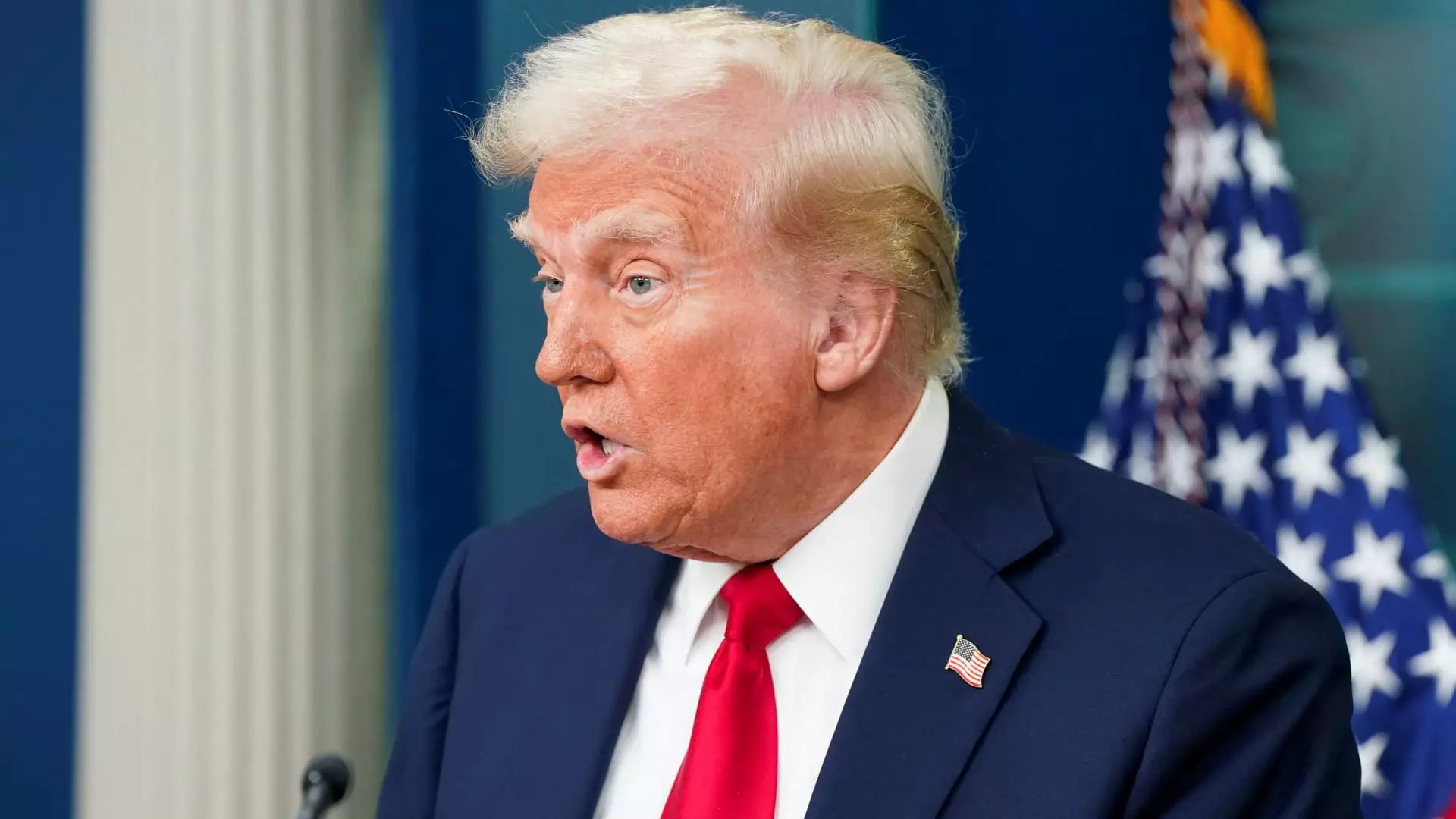On a fateful night above Washington, D.C., an American Airlines regional jet collided with an Army Black Hawk helicopter, leading to an unparalleled tragedy that has left the community in mourning. The crash, which has been identified as the deadliest U.S. aviation disaster since November 2001, resulted in the loss of all souls onboard both aircraft—64 passengers and 3 soldiers. As first responders transitioned their efforts from rescue to recovery, society grappled with the stark reality of such an incident bearing heavy emotional weight.
Former President Donald Trump’s response to the tragedy was immediate; however, the content of his remarks sparked controversy and debate. Instead of expressing unreserved condolences and focusing on the families affected by the loss, Trump used the stage to shift blame toward a broader narrative involving President Joe Biden and Democratic policies concerning Diversity, Equity, and Inclusion (DEI). Trump’s post on Truth Social raised questions about air traffic control protocols, while also suggesting that DEI initiatives could possibly have led to inadequate aviation safety measures—a claim that lacked supporting evidence.
What stands out in Trump’s commentary is the rapid transition from his initial expressions of grief to familiar political invectives aimed at his opponents. While it is common for politicians to use crises as platforms for their agendas, the perceived insensitivity of this pivot—particularly so soon after such a devastating event—has left many questioning his motives. The juxtaposition of his somber tone with complaints about Democratic policies feels disjointed, as the focus should perhaps remain on the victims and the investigation into how such a tragic mistake could occur.
The broader political ramifications of Trump’s comments underscore the persistent divide in American political discourse. Instead of calling for bipartisan efforts to ensure aviation safety and accountability, the dialogue swiftly turned into a blame game, which detracts from a constructive investigation into the incident. Furthermore, questioning the competence of emergency responders or air traffic control without facts only further complicates public perception of the tragedy.
In the wake of this catastrophic event, it is crucial for all political figures to prioritize empathy and understanding, especially when addressing the families grieving their loved ones. The air collision incident presents a chance not only for a thorough investigation but also an opportunity for leaders to unite in recognizing the need for safety measures to prevent future tragedies. Engaging in meaningful discussions about aviation safety—rather than political attacks—should be the focal point moving forward.
The events surrounding the D.C. air collision remind us that amidst the chaos of politics, the human element must never be overshadowed by partisan discord. As the community seeks answers, it’s integral for all to reflect on the importance of compassion and joint responsibility in the wake of tragedy.


Leave a Reply